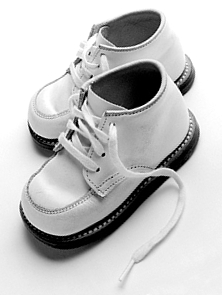Baby research shows assisted risk
 A study has shown the risk of tragic birth complications is nearly twice as high for babies conceived by assisted reproduction.
A study has shown the risk of tragic birth complications is nearly twice as high for babies conceived by assisted reproduction.
Hundreds of thousands of birth records and outcome were compared for the South Australian study, the most comprehensive of its kind. Researchers from the University of Adelaide's Robinson Institute looked at births over a seventeen year period.
Researchers say babies born through in-vitro fertilisation (IVF), intracytoplasmic sperm injection (ICSI), ovulation induction or cryopreservation of embryos are considerably more likely to be victims of stillbirth, preterm birth, low birth weight and neonatal death.
“Compared with spontaneous conceptions in couples with no record of infertility, singleton babies from assisted conception were almost twice as likely to be stillborn, more than twice as likely to be preterm, almost three times as likely to have very low birth weight, and twice as likely to die within the first 28 days of birth,” says the study leader, Professor Michael Davies.
“These outcomes varied depending on the type of assisted conception used. Very low and low birth weight, very preterm and preterm birth, and neonatal death were markedly more common in births from IVF and, to a lesser degree, in births from ICSI,” he said.
“Using frozen embryos eliminated all significant adverse outcomes associated with ICSI but not with IVF. However, frozen embryos were also associated with increased risk of macrosomia [big baby syndrome] for IVF and ICSI babies.”
Professor Davies says the study confirms related work in Europe and Australia showing that infertility treatment is associated with adverse outcomes for newborn babies.
“More research is now urgently needed into longer term follow-up of those who have experienced comprehensive perinatal disadvantage,” he says. "Our studies also need to be expanded to include more recent years of treatment, as the technology has been undergoing continual innovation, which may influence the associated risks."
The study is also the first to compare pregnancies in women diagnosed with infertility but who never received intensive treatment.
“Women in this group who eventually conceived without the help of invasive assisted reproduction gave birth to babies who were nine times more likely to have very low birth weight, seven times more likely to be very preterm, and almost seven times more likely to die within the first 28 days of birth. This may be due to the underlying medical conditions related to their infertility, or the use of fertility medications or therapies that are not recorded,” Professor Davies said.








 Print
Print